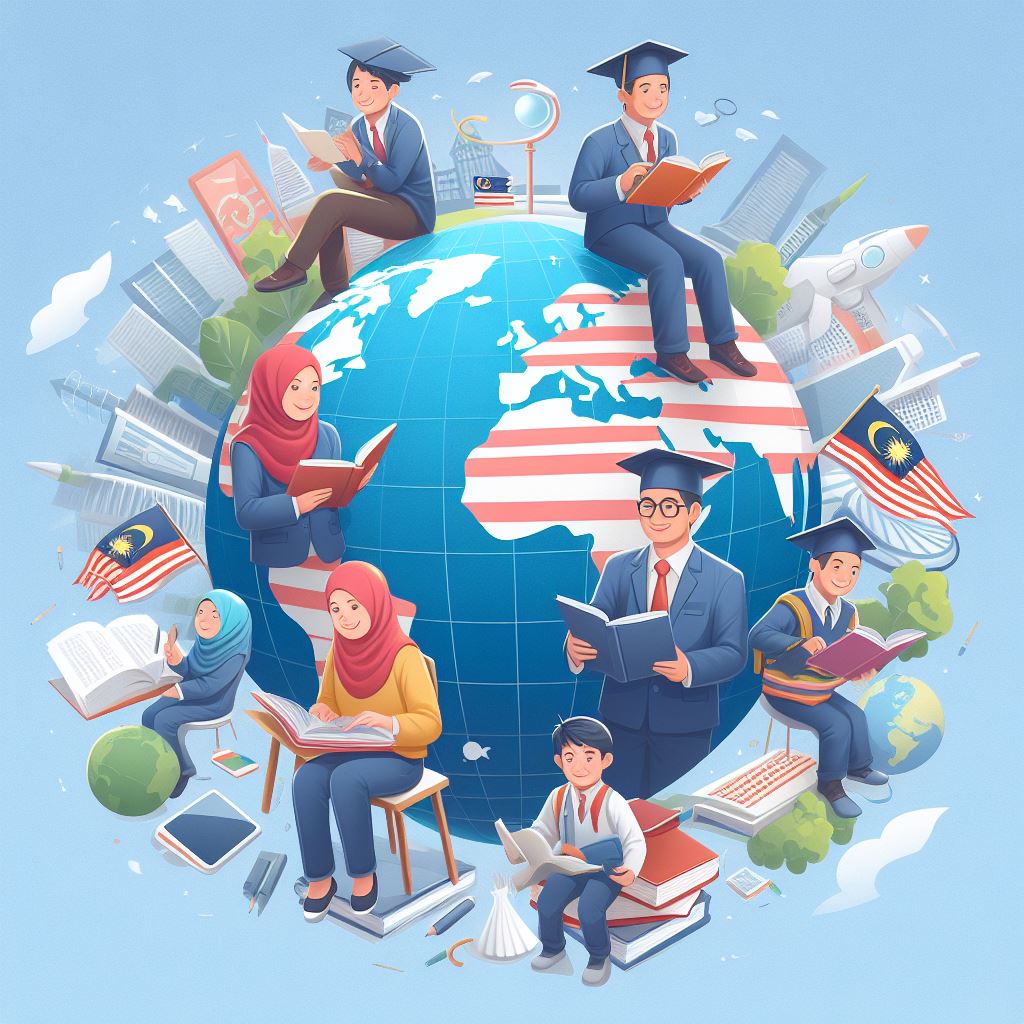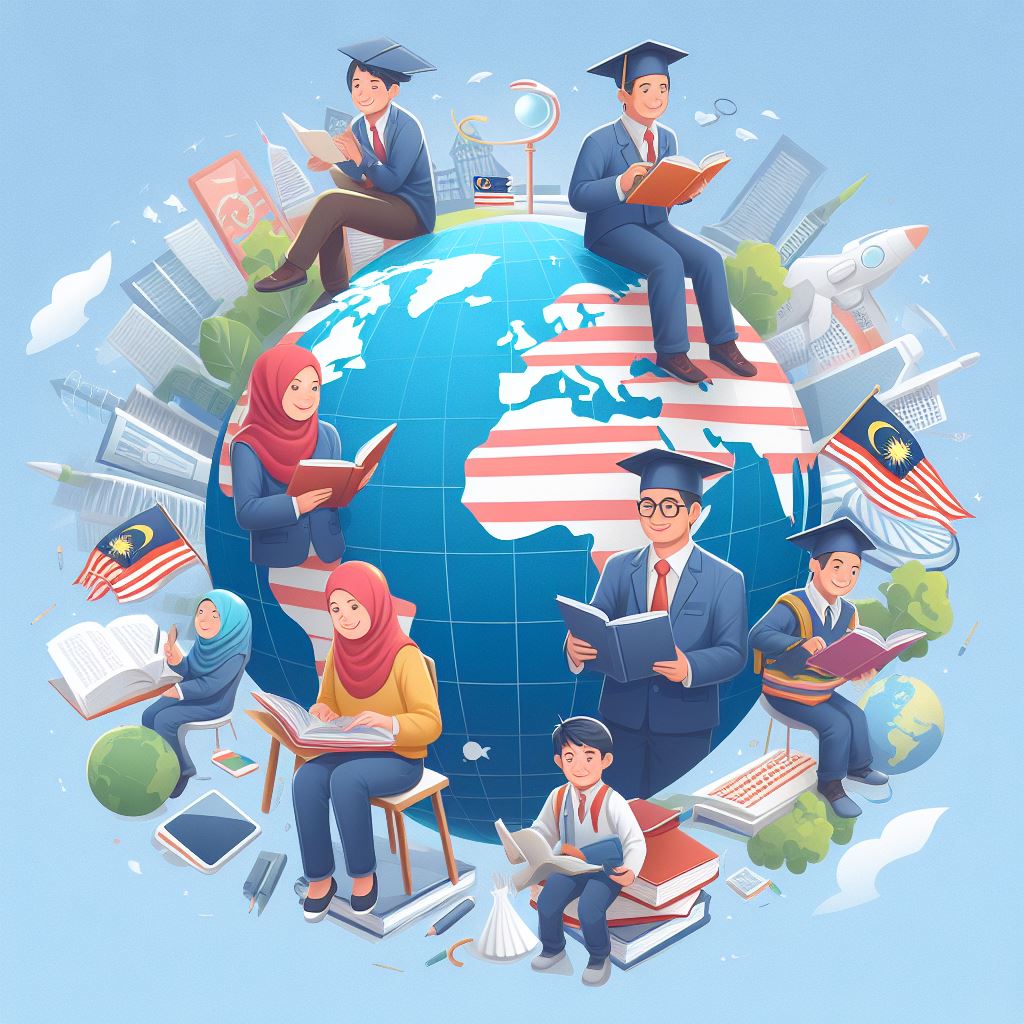by: Rudy Ludinata, Deputy Director CEM

Introduction
In today's rapidly evolving global landscape, the transition from learning to earning is a pivotal journey for individuals worldwide. With technological advancements, shifting economic paradigms, and the ever-growing importance of education, this transition has become both more complex and crucial. Understanding this journey from a global perspective sheds light on the diverse challenges, opportunities, and strategies involved in navigating this transition successfully.
Diverse Educational Landscapes
One of the defining features of the transition from learning to earning is the diversity of educational landscapes across the globe. From well-established educational systems in developed countries to emerging educational infrastructures in developing nations, the journey begins with access to quality education. Disparities in educational resources, infrastructure, and teaching methodologies significantly impact individuals' preparedness for the workforce.
For example, consider the differences between education systems in Sweden and Somalia. Sweden boasts a robust education system with free education for all citizens, extensive vocational training programs, and a strong emphasis on critical thinking and innovation. In contrast, Somalia faces challenges such as widespread poverty, limited access to education, and ongoing conflict, resulting in a fragmented education system with inadequate resources and infrastructure.
Challenges and Opportunities
Navigating the transition from learning to earning presents both challenges and opportunities. In many regions, youth unemployment rates are disproportionately high, reflecting the mismatch between educational outcomes and labor market demands. However, advancements in technology have created new avenues for learning and employment, such as online education platforms, remote work opportunities, and the gig economy. Embracing these opportunities requires individuals to develop a diverse skill set that aligns with the evolving demands of the global market.
For instance, the COVID-19 pandemic accelerated the adoption of remote work and digital technologies, creating opportunities for individuals to work from anywhere in the world. Companies like Zoom and Shopify have seen exponential growth, demonstrating the potential for remote work to reshape the future of employment. In response, educational institutions have adapted their programs to include courses on remote work skills, digital literacy, and virtual collaboration, preparing students for the realities of the modern workforce.
Skills for Success
In today's interconnected world, success in the workforce requires more than just academic credentials. Employers seek individuals with a blend of technical expertise, soft skills, adaptability, and cross-cultural competency. Thus, the transition from learning to earning necessitates a holistic approach to skill development. Initiatives that foster entrepreneurship, innovation, critical thinking, and problem-solving skills empower individuals to thrive in dynamic work environments.
For example, consider the case of a young entrepreneur from Kenya who leveraged online resources to learn coding and software development skills. Armed with these skills, she launched a successful tech startup that provides e-learning solutions for students in underserved communities. Her journey underscores the transformative power of education and the importance of equipping individuals with practical skills that enable them to create positive change in their communities.
Global Collaboration
While the transition from learning to earning is a deeply personal journey, it is also inherently interconnected with global dynamics. International collaboration in education, research, and workforce development plays a vital role in shaping individuals' career trajectories. Programs such as student exchanges, cross-border internships, and collaborative research initiatives facilitate the exchange of knowledge, ideas, and best practices, preparing individuals for success in an increasingly globalized workforce.
For instance, initiatives like Erasmus+ in Europe and the Fulbright Program in the United States promote cultural exchange and academic cooperation between countries. Through these programs, students and scholars have the opportunity to study abroad, conduct research in international settings, and gain valuable cross-cultural experiences that enhance their employability and enrich their personal growth.
Policy Implications
Governments, policymakers, and educational institutions play a crucial role in facilitating a smooth transition from learning to earning. Investments in education infrastructure, curriculum reform, vocational training programs, and lifelong learning initiatives are essential components of a comprehensive strategy to bridge the gap between education and employment. Furthermore, policies that promote inclusivity, diversity, and equal access to opportunities are instrumental in fostering a more equitable workforce.
For example, countries like Finland have implemented innovative education policies focused on personalized learning, teacher training, and equitable access to resources. As a result, Finland consistently ranks among the top performers in international education assessments and boasts low levels of youth unemployment. By prioritizing education as a national priority and investing in human capital development, Finland has created an environment where individuals can successfully transition from learning to earning.
Conclusion
The transition from learning to earning is a multifaceted journey that varies significantly across different regions and contexts. Yet, at its core, it represents the pursuit of economic independence, personal fulfillment, and societal contribution. By embracing the opportunities presented by globalization, leveraging technological advancements, and fostering a culture of lifelong learning, individuals can navigate this transition with confidence and resilience. Ultimately, a global perspective on the journey from learning to earning highlights the interconnectedness of education, employment, and sustainable development in the 21st century.
Date of Input: 26/03/2024 | Updated: 26/03/2024 | ludinata
MEDIA SHARING












.jpg)














